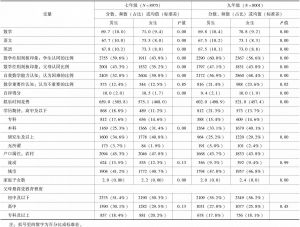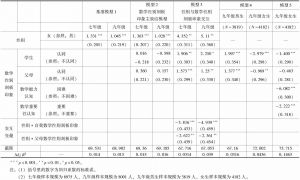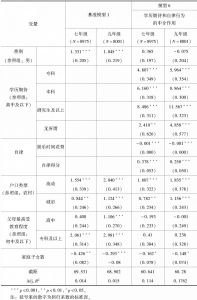论文
女孩的数学成绩何以优于男孩?
摘要
学业成就的性别差异是教育不平等的一个基本维度,越来越多的研究发现,女孩的学业成就开始赶上甚至超过男孩。本研究以CEPS 2013年基线调查数据为基础,考察了传统“男性优势”学科数学成绩的性别差异以及可能的影响因素。研究发现,初中阶段女孩的数学成绩显著高于男孩。一方面,传统的社会性别观念,尤其是数学性别刻板印象导致女孩形成低数学能力的自我认知;另一方面,女孩及其父母的高教育期待、女孩在学校教育过程中高自律的卷入在一定程度上补偿了性别刻板印象所带来的负面影响。
作者
陈彬莉 ,北京师范大学社会发展与公共政策学院讲师(blichen@bnu.edu.cn)
白晓曦 ,沈阳师范大学学前与初等教育学院讲师(baixiaoxi126@126.com)。
Chen Binli
Bai Xiaoxi
检索正文关键字
论文目录
- 一 问题的提出
-
二 文献述评
- (一)传统社会性别观念:数学性别刻板印象
- (二)非认知能力
- (三)父母的教养方式及教育期待的影响
- (四)小结
-
三 数据、变量与方法
- (一)数据
- (二)变量
- (三)数据分析步骤
-
四 研究发现
- (一)初中生的数学成绩性别差异:女孩优于男孩
- (二)数学性别刻板印象的负面影响
- (三)女性及其家庭的补偿策略
- (四)其他控制变量的影响
- 五 结论与讨论
相关文献
查看更多>>>





